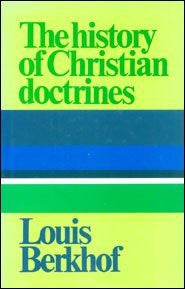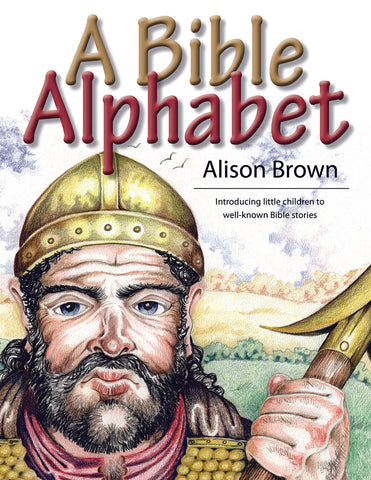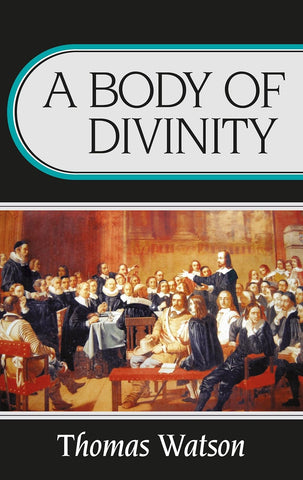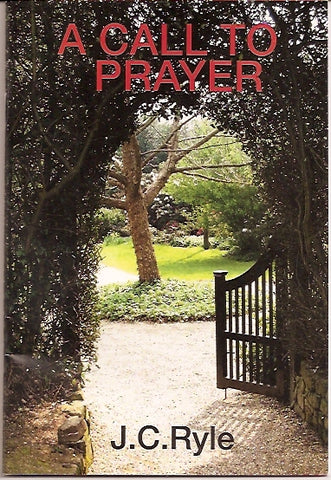
History of Christian Doctrines
By: Louis Berkhof| Product Details | |
|---|---|
| Publisher | Banner of Truth |
| Year | |
| ISBN | 9780851500515 |
The study of doctrinal truth, apart from its historical background, leads to a truncated theology. There has been too much of this in the past, and there is a great deal of it even in the present day. The result has been the lack of a sound understanding and a proper evaluation of the truth. There was no appreciation of the fact that the Holy Spirit guided the Church in the interpretation and development of the truth as it is revealed in the Word of God. The checks and the road-signs of the past were not taken into consideration, and ancient heresies, long since condemned by the Church, are constantly repeated and represented as new discoveries.
The lessons of the past are greatly neglected, and many seem to feel that they should strike out entirely on their own, as if very little had been accomplished in the past. Surely, a theologian must take account of the present situation in the religious world, and ever study the truth anew, but he cannot neglect the lessons of the past with impunity. May this brief study of the history of doctrines serve to create a greater interest in such historical study, and lead to a better understanding of the truth.
A companion volume to the author’s Systematic Theology, also available from Banner of Truth.
|
Prolegomena |
|
|
|
I: |
THE SUBJECT-MATTER OF THE HISTORY OF DOGMA |
|
|
|
1. The meaning of the word ‘dogma’ |
15 |
|
|
2. The origin and character of dogmas |
16 |
|
II: |
THE TASK OF THE HISTORY OF DOGMA |
|
|
|
1. Its presuppositions |
20 |
|
|
2. Its subject-matter |
23 |
|
III: |
METHOD AND DIVISIONS OF THE HISTORY OF DOGMA |
|
|
|
1. Divisions of the history of dogma |
25 |
|
|
2. Method of treatment |
26 |
|
IV: |
HISTORY OF THE HISTORY OF DOGMA |
|
|
|
1. Factors that gave rise to the history of dogma as a separate discipline |
29 |
|
|
2. Earlier works on the history of dogma |
31 |
|
|
3. Later works on the history of dogma |
32 |
|
|
Preparatory doctrinal development |
|
|
I: |
THE APOSTOLIC FATHERS AND THEIR DOCTRINAL VIEWS |
|
|
|
1. Their reputed writings |
37 |
|
|
2. Formal characteristics of their teachings |
38 |
|
|
3. Material contents of their teachings |
40 |
|
II: |
PERVERSIONS OF THE GOSPEL |
|
|
|
1. Jewish perversions |
44 |
|
|
2. Gentile perversions: Gnosticism |
45 |
|
III: |
REFORM MOVEMENTS IN THE CHURCH |
|
|
|
1. Marcion and his movement of reform |
52 |
|
|
2. The Montanist Reformation |
54 |
|
IV: |
THE APOLOGISTS AND THE BEGINNINGS OF THE CHURCH’S THEOLOGY |
|
|
|
1. The task of the apologists |
56 |
|
|
2. Their positive construction of the truth |
57 |
|
|
3. Their significance for the history of dogma |
59 |
|
V: |
THE ANTI-GNOSTIC FATHERS |
|
|
|
1. The anti-Gnostic Fathers; Biographical |
62 |
|
|
2. Their doctrines of God, Man, and the history of redemption |
63 |
|
|
3. Their doctrine of the Person and work of Christ |
64 |
|
|
4. Their doctrines of Salvation, the Church, and the last things |
67 |
|
VI: |
THE ALEXANDRIAN FATHERS |
|
|
|
1. The Alexandrian Fathers; Biographical |
70 |
|
|
2. Their doctrines of God and Man |
71 |
|
|
3. Their doctrine of the Person and work of Christ |
73 |
|
|
4. Their doctrines of Salvation, the Church, and the last things |
74 |
|
VII: |
MONARCHIANISM |
|
|
|
1. Dynamic Monarchianism |
77 |
|
|
2. Modalistic Monarchianism |
78 |
|
|
The doctrine of the Trinity |
|
|
I: |
THE TRINITARIAN CONTROVERSY |
|
|
|
1. The background |
83 |
|
|
2. The nature of the controversy |
84 |
|
|
3. The Council of Nicaa |
86 |
|
|
4. The aftermath: |
|
|
|
[a] Unsatisfactory nature of the decision |
87 |
|
|
[b] Temporary ascendancy of semi-Arianism in the Eastern Church |
87 |
|
|
[c] The turning of the tide |
89 |
|
|
[d] The dispute about the Holy Spirit |
90 |
|
|
[e] Completion of the doctrine of the Trinity |
91 |
|
II: |
THE DOCTRINE OF THE TRINITY IN LATER THEOLOGY |
|
|
|
1. The doctrine of the Trinity in Latin theology |
94 |
|
|
2. The doctrine of the Trinity in the period of the Reformation |
95 |
|
|
3. The doctrine of the Trinity after the period of the Reformation |
96 |
|
|
The doctrine of Christ |
|
|
I: |
THE CHRISTOLOGICAL CONTROVERSIES |
|
|
|
1. The first stage of the controversy: |
|
|
|
[a] The background |
102 |
|
|
[b] The parties to the controversy |
103 |
|
|
[c] The decision of the Council of Chalcedon |
107 |
|
|
2. The second stage of the controversy: |
|
|
|
[a] Confusion after the decision of the Council |
108 |
|
|
[b] The Monothelitic Controversy |
109 |
|
|
[c] The construction of the doctrine by John of Damascus |
110 |
|
|
[d] The Christology of the Western Church |
111 |
|
II: |
LATER CHRISTOLOGICAl DISCUSSIONS |
|
|
|
1. In the Middle Ages |
114 |
|
|
2. During the Reformation |
115 |
|
|
3. In the nineteenth century |
117 |
|
|
[a] The view of Schleiermacher |
118 |
|
|
[b] The conceptions of Kant and Hegel |
119 |
|
|
[c] The Kenotic theories |
120 |
|
|
[d] Dorner’s conception of the Incarnation |
121 |
|
|
[e] Ritschl’s view of the Person of Christ |
122 |
|
|
[f] Christ in modern theology |
122 |
|
|
The doctrine of sin and grace and related doctrines |
|
|
I: |
THE ANTHROPOLOGY OF THE PATRISTIC PERIOD |
|
|
|
1. The importance of anthropological problems |
127 |
|
|
2. The anthropology of the Greek Fathers |
127 |
|
|
3. The gradual emergence of another view in the West |
129 |
|
II: |
THE PELAGIAN AND AUGUSTINIAN DOCTRINES
OF SIN AND GRACE |
|
|
|
1. Augustine and Pelagius |
131 |
|
|
2. The Pelagian ___ of sin and grace |
132 |
|
|
3. The Augustinian view of sin and grace |
133 |
|
|
[a] Augustine’s view of sin |
134 |
|
|
[b] His view of grace |
135 |
|
|
4. Pelagian and Semi-Pelagian controversies |
137 |
|
III: |
THE ANTHROPOLOGY OF THE MIDDLE AGES |
|
|
|
1. The views of Gregory the Great |
140 |
|
|
2. The Gottschalkian controversy |
141 |
|
|
3. The contribution of Anselm |
|
|
|
[a] His doctrine of sin |
142 |
|
|
[b] His doctrine of the freedom of the will |
143 |
|
|
4. Peculiarities of Roman Catholic anthropology |
144 |
|
IV: |
THE ANTHROPOLOGY OF THE PERIOD OF THE
REFORMATION |
|
|
|
1. The anthropology of the Reformers |
147 |
|
|
2. The Socinian position |
149 |
|
|
3. Arminian anthropology |
150 |
|
|
4. The position of the Synod of Dort |
151 |
|
|
5. The position of the School of Saumur |
153 |
|
V: |
ANTHROPOLOGICAL VIEWS OF POST-REFORMATION TIMES |
|
|
|
1. Divergent views: |
|
|
|
[a] A modification of the Arminian view in Wesleyan Arminianism |
155 |
|
|
[b] A modification of the Reformed view in New England theology |
156 |
|
|
2. Some modern theories of Sin: |
|
|
|
[a] Philosophical |
157 |
|
|
[b] Theological |
158 |
|
|
The doctrine of the atonement or of the work of Christ |
|
|
I: |
THE DOCTRINE OF THE ATONEMENT BEFORE ANSELM |
|
|
|
1. In Greek patristic theology |
165 |
|
|
2. In Latin patristic theology |
168 |
|
II: |
THE DOCTRINE OF THE ATONEMENT FROM ANSELM TO THE REFORMATION |
|
|
|
1. The doctrine of the atonement in Anselm |
171 |
|
|
2. Abelard’s theory of the atonement |
174 |
|
|
3. Reaction to Abelard in Bernard of Clairvaux |
175 |
|
|
4. Syncretistic views of the atonement |
|
|
|
[a] Peter the Lombard |
176 |
|
|
[b] Bonaventura |
176 |
|
|
[c] Thomas Aquinas |
177 |
|
|
5. Duns Scotus on the atonement |
179 |
|
III: |
THE DOCTRINE OF THE ATONEMENT IN THE
PERIOD OF THE REFORMATION |
|
|
|
1. The Reformers improve on the doctrine of Anselm |
182 |
|
|
2. The Socinian conception of the atonement |
182 |
|
|
3. The Grotian theory of the atonement |
186 |
|
|
4. The Arminian view of the atonement |
188 |
|
|
5. The compromise of the School of Saumur |
190 |
|
IV: |
THE DOCTRINE OF THE ATONEMENT AFTER THE
REFORMATION |
|
|
|
1. The Marrow controversy in Scotland |
192 |
|
|
2. Schleiermacher and Ritschl on the atonement |
193 |
|
|
3. Some of the more recent theories on the atonement: |
|
|
|
[a] The governmental theory in New England theology |
195 |
|
|
[b] Different types of the moral influence theory |
196 |
|
|
[c] The mystical theory of the atonement |
198 |
|
|
The doctrine of the application and appropriation of Divine Grace |
|
|
I: |
THE SOTERIOLOGY OF THE PATRISTIC PERIOD |
|
|
|
1. The soteriology of the first three centuries |
203 |
|
|
2. The soteriology of the remaining centuries of the Patristic Period |
205 |
|
II: |
THE SOTERIOLOGY OF THE SCHOLASTIC PERIOD |
|
|
|
1. The scholastic conception of grace |
211 |
|
|
2. The scholastic conception of faith |
212 |
|
|
3. The scholastic conception of justification and merit |
213 |
|
III: |
REFORMATION AND POST-REFORMATION
SOTERIOLOGY |
|
|
|
1. The Lutheran order of salvation |
217 |
|
|
2. The Reformed order of salvation |
219 |
|
|
3. The Arminian order of salvation |
221 |
|
|
4. Minor conceptions of the order of salvation |
|
|
|
[a] Antinomian |
222 |
|
|
[b] Mystical |
223 |
|
|
The doctrine of the Church and the Sacraments |
|
|
I: |
THE DOCTRINE OF THE CHURCH |
|
|
|
1. In the Patristic Period |
227 |
|
|
2. In the Middle Ages |
232 |
|
|
3. During and after the Reformation |
|
|
|
[a] The Lutheran view |
236 |
|
|
[b] The Anabaptist view |
237 |
|
|
[c] The Reformed view |
237 |
|
|
[d] Divergent Post-Reformation views |
238 |
|
II: |
THE DOCTRINE OF THE SACRAMENTS |
|
|
|
1. The sacraments in general: |
|
|
|
[a] Development of the doctrine before the Reformation |
242 |
|
|
[b] The doctrine of the Reformers and of later theology |
245 |
|
|
2. Baptism: |
|
|
|
[a] Development of the doctrine before the Reformation |
247 |
|
|
[b] The doctrine of the Reformers and of later theology |
249 |
|
|
3. The Lord’s Supper: |
|
|
|
[a] Development of the doctrine before the Reformation |
251 |
|
|
[b] The doctrine of the Reformers and of later theology |
254 |
|
|
The doctrine of the last things |
|
|
I: |
THE INTERMEDIATE STATE |
259 |
|
II: |
THE SECOND ADVENT AND THE MILLENNIAL HOPE |
262 |
|
III: |
THE RESURRECTION |
265 |
|
IV: |
THE LAST JUDGMENT AND FINAL AWARDS |
267 |
|
|
Literature |
273 |
|
|
Index of names |
277 |
|
|
Index of subjects |
280 |




